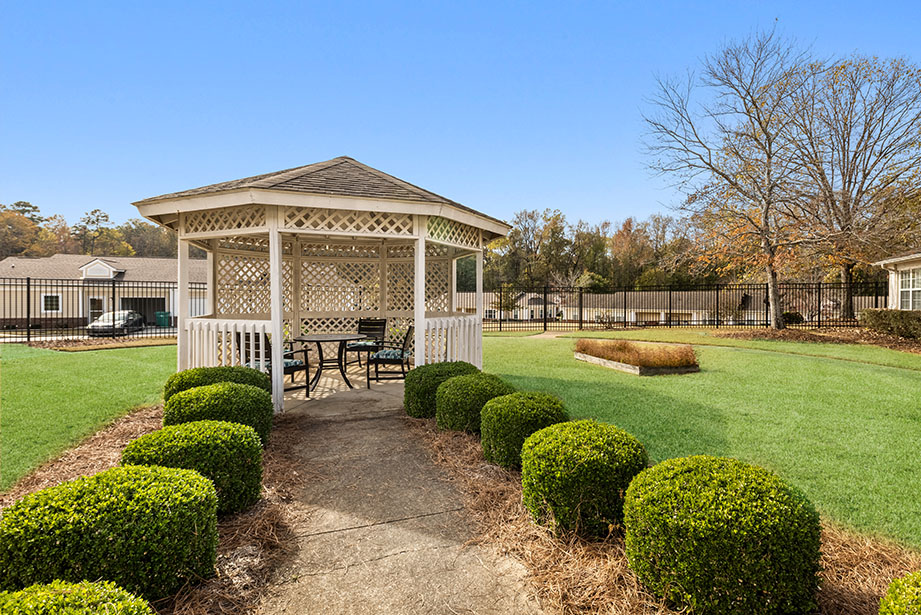Key Takeaways
- Most retirees consider downsizing between ages 65–75 when maintenance becomes challenging
- Financial indicators include housing costs exceeding 30% of income, limiting budgets for activities and socializing
- Physical changes like mobility issues and overwhelming maintenance tasks signal it’s time to consider smaller living spaces
- Downsizing can free up home equity and reduce monthly expenses significantly
- Senior living communities offer maintenance-free lifestyles that complement downsizing goals
You’ve spent decades building memories in your current home, but lately, you might find yourself wondering if it’s time for a change. The rooms that once buzzed with family activity now sit empty, and the yard work that once brought satisfaction has become a burden.
The right time to downsize varies for each person, but generally occurs when your current home no longer matches your lifestyle, budget, or physical needs—typically between ages 65 and 75.
Recognizing these signs early allows you to make thoughtful decisions about your housing future, whether that includes independent living communities or other senior living options that comfortably suit your current circumstances.
Understanding the Right Time to Downsize Your Home
What Age Do Most Seniors Consider Downsizing?
Most retirees begin seriously considering downsizing between ages 65 and 75. This timeframe often coincides with major life transitions, like retirement, health changes, or the loss of a spouse. However, your personal circumstances matter more than any specific age milestone.
Some people start thinking about downsizing in their early 60s when they retire and realize their housing needs have shifted. Others wait until their late 70s when physical limitations make their current home less practical.
The key is recognizing when your home no longer serves your current lifestyle and future goals.
Personal vs. Market-Driven Timing Decisions
Your personal readiness should drive your downsizing timeline more than market conditions. While real estate markets fluctuate, your daily comfort and financial stability are more important than timing the market perfectly.
If your home has become burdensome, waiting for ideal market conditions might mean missing opportunities for a more comfortable lifestyle.
That said, understanding your local housing market can help you make informed decisions. Consider consulting with a real estate professional to understand your home’s current value and how it might impact your downsizing goals.
Financial Signs That Point to Downsizing
When Housing Costs Exceed 30% of Your Income
When your total housing expenses—including mortgage payments, property taxes, insurance, utilities, and maintenance—consume more than 30% of your retirement income, it might be time to consider downsizing.
Downsizing with this percentage in mind allows for flexibility in your budget, accommodating healthcare, entertainment, and other retirement priorities.
When housing costs dominate your budget, you may find yourself cutting back on activities and experiences that bring joy to your retirement years.
Limited Monthly Budget for Other Activities
Retirement should offer opportunities to pursue interests and spend time with loved ones. If high housing costs leave little room for dining out, travel, hobbies, or family visits, downsizing could free up funds for these meaningful experiences.
A smaller home with lower expenses often means more money available for the activities that matter to you. Alabama seniors can take advantage of local senior discounts to help stretch their retirement budget further.
Converting Home Equity Into Retirement Income
Your home likely represents a significant portion of your wealth. Downsizing allows you to access this equity, potentially providing funds for retirement living expenses or long-term care needs.
The proceeds from selling a larger home and purchasing a smaller one can supplement your retirement income for years to come. Financial planning resources can help you understand how to optimize this strategy.
Physical and Lifestyle Changes That Signal It’s Time
Home Maintenance Becomes Overwhelming
When routine maintenance tasks like lawn care, cleaning, or minor repairs feel overwhelming or unsafe, your home might be too large for your current abilities. The physical demands of maintaining a large property can increase stress and risk of injury.
Moving to a smaller space or a community that handles maintenance can restore your peace of mind.
Mobility Issues Make Your Home Difficult to Navigate
Stairs, high thresholds, or narrow doorways can become challenging as mobility changes. If you find yourself avoiding certain areas of your home or struggling with daily navigation, it might be time to consider more accessible housing options.
A single-level home or community designed with accessibility in mind can support your independence. Understanding activities of daily living can help you assess your current and future needs.
Multiple Unused Rooms in Your House
Empty bedrooms, formal dining rooms, and other unused spaces represent wasted square footage—and wasted money on utilities, taxes, and maintenance costs.
If you’re heating, cooling, and maintaining spaces you don’t actively use, downsizing to a home that matches your actual needs makes practical sense.
Social and Location Factors to Consider

Becoming the Oldest Resident in Your Neighborhood
When younger families move into your neighborhood and your long-time neighbors relocate or pass away, you might feel increasingly isolated.
Age-integrated communities or moving to a community with peers in similar life stages offer more opportunities for friendship and shared experiences. You can build a thriving network of friends and neighbors to connect to your new community.
Wanting to Move Closer to Family
The geographic distance from adult children or grandchildren becomes increasingly significant during retirement. Moving closer to family can provide emotional support and more frequent visits. Downsizing often makes relocation more feasible, both financially and logistically.
Career or Location Ties No Longer Apply
Once work commutes and career considerations no longer tie you to a specific location, you have the freedom to choose where you live based on other factors.
Climate preferences, cost of living, access to healthcare, or proximity to amenities may now take priority in your housing decisions.
Financial Benefits of Downsizing for Retirees
Potential Profits From Home Sale
If you’ve owned your home for many years, you likely have significant equity built up.
Selling and moving to a less expensive property can provide substantial cash that you can invest or use for retirement expenses. The financial cushion can provide security and flexibility in your retirement planning.
Reduced Monthly Expenses
Smaller homes typically mean lower utility bills, reduced maintenance costs, and often lower insurance premiums. These monthly savings accumulate over time, freeing up dollars each month for your retirement budget and other priorities.
Lower Property Taxes and Utility Costs
Property taxes are typically based on home value, so a less expensive home usually means lower annual tax bills. Similarly, heating and cooling smaller spaces costs less, and you may qualify for senior discounts on utilities in some areas.
These ongoing savings contribute to a more manageable fixed-income budget.
Making the Transition to Independent Living and Senior Communities
How Downsizing Can Lead to Senior Living Options
Downsizing often naturally leads people to consider senior living communities as an attractive option.
These communities offer appropriately sized living spaces without the burdens of home ownership. You can enjoy your own private apartment while having access to community amenities and social opportunities.
Understanding the differences between care levels can help you choose the right option for your needs.
Independent Living as a Natural Next Step
Independent living communities provide maintenance-free lifestyles that align perfectly with downsizing goals. You maintain your independence and privacy while eliminating concerns about yard work, home repairs, and property maintenance.
These communities often offer dining options, social activities, and transportation services that help transform your quality of life. Staying physically active becomes easier when community amenities support your wellness goals.
Downsizing to Summer Village Senior Living
At Summer Village, our independent living offerings aren’t typical. Through our three independent living campuses in Auburn, AL, we offer a wide range of senior apartments, villas, and cottages that fit every pace and preference.
Unlike traditional retirement communities with one-size-fits-all living, Summer Village gives you choices. Want a maintenance-free villa where you can live independently and spend more time traveling or pursuing hobbies? Or would you rather enjoy a full-service lifestyle with delicious meals, housekeeping, and transportation taken care of? The choice is entirely yours.
Explore our three distinct independent living campuses and discover how easy and fulfilling your next move can be.
Planning Ahead for Future Care Needs
Moving to a senior living community that offers multiple levels of care allows you to plan for potential future needs.
Starting with independent living while you’re healthy provides familiarity and comfort if you later need assisted living or memory care. The continuity of location and relationships can offer peace of mind for you and your family.
At Summer Village Senior Living in Auburn, we understand that downsizing represents a significant decision in your life. Our community can provide the maintenance-free lifestyle you’re seeking, along with opportunities for social connection and engaging activities.
We invite you to schedule a tour of our campus to see how our community might fit your downsizing goals and retirement lifestyle.









